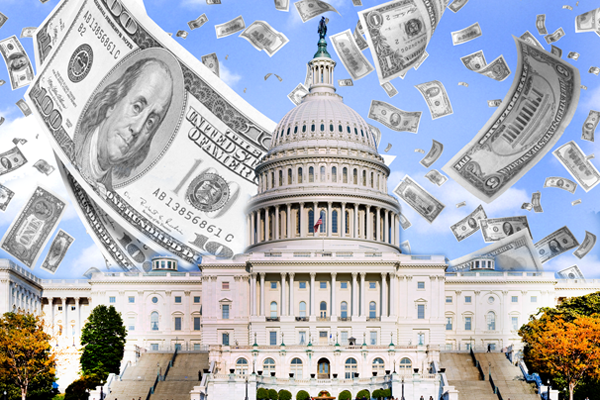Last week the head of a large US corporation met with his peers from other leading firms in the same industry. Although the stated goals of the meeting were a direct violation of federal anti-trust law, they nevertheless held the meeting with fanfare and total impunity. These powerful CEO’s set the ground rules for a price-fixing scheme. They believed it was in the best interests of their industry to establish a price floor for their services. Competition, they feared, would result in a “race to the bottom,” possibly bankrupting many of them.
It’s hard to fathom how such an event could have taken place with zero outrage from the political and media class. Indeed, this meeting was celebrated widely. So who were these shameless captains of industry and how did they avoid prosecution? It’s easy to get away with breaking the rules when you’re the one making and enforcing them. The meeting in question was the annual G20 summit. One of the primary outcomes of this meeting was a conspiracy to set a global 15% minimum tax rate on “big business” (whatever that means). The participating governments constitute a literal cartel: “an association … with the purpose of maintaining prices at a high level and restricting competition”.
It is a peculiar irony that governments pay lip service to the ideas of “free and fair competition” and “monopolies bad” but then exempt themselves from this very ethos. They have a literal monopoly on violence (law enforcement) and theft (tax collection) within their borders. Competing mail delivery, police, courts, and schools are either prohibited outright or de facto through the crowding out effect of direct taxation for these “services.” The one recourse people have to escape these monopolies is jurisdictional competition. Move to where the policies and taxes are better. States and counties often vie with one another to attract businesses and citizens through more favorable tax treatment. But it seems that option must now be circumscribed, at least at the national level. These governments (mainly the US) are afraid that their onerous policies and taxes will drive businesses into the open arms of the competition – that is, other states/governments. But a price fixing cartel will stop that right in its tracks. This is a desperation ploy, pure and simple. Attempts to tax unrealized gains or this “taxexit” short-circuit only signal the ruling elite are running out of revenue options to offset their decades of profligate spending.
If the left were intellectually honest they should oppose these supranational agreements. Why? Because it directly nullifies that which they profess hold most dear: democracy. Citizens voted in their representatives. Those reps are tasked with deciding what they think is best for THEIR country (not others). But now those representatives’ voices will be ignored in favor of the wishes of the ruling class oligopoly. Are these democracy worshipers truly indifferent to the idea of the US undermining democracy in foreign lands with their heavy-handed tactics? If China had leverage to influence US domestic policy they would not be so apathetic?
The US’s globally dominant market position should be used to lead the way toward economic prosperity. It reflects poorly on the US regime that they would use this influence instead as a bludgeon to threaten and coerce others into submission. Were the US to eliminate all corporate taxes it would spark a renaissance of investment and growth as companies expanded and hired workers. We had just a tiny taste of this with the Trump corporate tax cuts. Imagine the impact if those taxes were eliminated entirely! The massive increase in productivity would improve the standard of living for everyone worldwide as other countries followed suit. Every dollar taxed is a dollar that can’t be used to hire a worker, build a new facility, or invest in new equipment. The more you tax the less you can have of all three. Taxes are truly a zero sum game.








